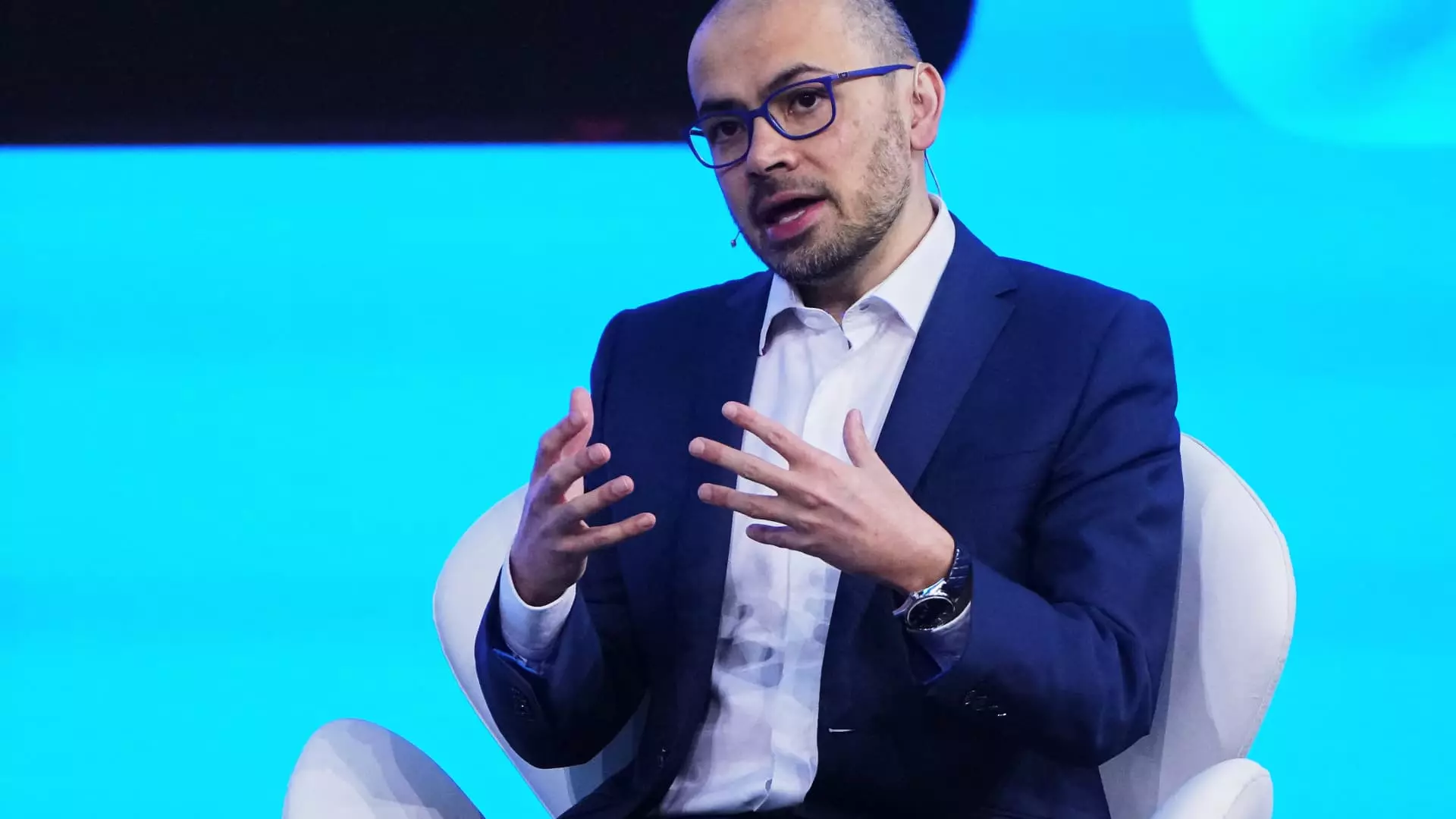In a rapidly transforming technological landscape, artificial intelligence (AI) continues to evoke both excitement and concern. The recent discussions surrounding Deepseek’s AI model have encapsulated this dichotomy, particularly with the input from Demis Hassabis, the CEO of Google DeepMind. While praises for Deepseek’s contributions arise, marked reservations linger about the actual advancements being presented. This article delves into the implications of Hassabis’ remarks, the broader context of AI infrastructure investment, and the tantalizing prospects of artificial general intelligence (AGI).
Deepseek recently garnered attention with claims that their AI model was developed at a significantly lower cost compared to leading competitors while utilizing less advanced hardware. Such statements sparked volatility in global markets, particularly among tech stocks. However, Hassabis captured a crucial aspect of the conversation by noting that while Deepseek’s model is commendable, it does not signify a groundbreaking leap in technology.
Although Hassabis acknowledged that it represents “probably the best work I’ve seen come out of China,” he cautioned against succumbing to hype without substantial evidence of innovation. This perspective invites scrutiny of whether advancements in AI infrastructure from leading firms overshadow other global entrants like Deepseek. The AI domain is increasingly characterized by national pride and competitive superiority, making international collaboration more critical than ever.
Challenges in Development: Cost and Complexity
Many experts have raised flags regarding the purported low cost of Deepseek’s AI model. The assertion that significant breakthroughs can be achieved using outdated hardware is met with skepticism from industry insiders who argue that real costs might be obscured. This raises pressing questions about the sustainability of AI development, prompting a reevaluation of the resource allocations amongst major players in the field.
Hassabis himself indicated that many proclaimed advances are essentially repackaged known techniques, pointing towards continuity over innovation. His remarks reflect a broader reality within the AI sector, where the narrative of rapid transformation often biases interpretations of progress.
Rethinking AGI: Progress and Caution
Discussions around AGI — a hypothetical AI that possesses cognitive abilities surpassing human intelligence — have been a focal point in the ongoing dialogues about AI’s future. Hassabis mirrored sentiments from industry leaders like OpenAI’s Sam Altman, indicating that an unprecedented level of cognitive capability could be approached within a five-year timeframe. This notion is tantalizing yet laced with profound responsibility.
The path toward AGI presents dual edges — potential for unfathomable benefits alongside inherent risks. Experts like Max Tegmark and Yoshua Bengio emphasize the urgent need for governance frameworks to mitigate anxiety surrounding human control over such advanced systems. The collective aspiration to harness AGI must go hand in hand with rigorous discussions about ethical boundaries and the ramifications of unintended consequences.
With seismic shifts on the horizon, it is imperative that we approach the advent of AGI with the same deliberation afforded to other monumental technological transitions. The role of society in shaping this narrative cannot be undermined. Building an inclusive discourse that engages diverse perspectives and promotes equitable access to AI benefits is paramount.
As Hassabis aptly noted, readiness is essential not only regarding the technical deployment of AI but also in terms of socio-economic adaptability. The transformative power of AI will lead to sweeping changes across labor markets, education, and healthcare. As such, an integrated approach encompassing policy-making, ethical considerations, and public awareness becomes essential.
The unfolding saga of AI, underscored by the recent revelations from Deepseek and commendations from influential figures like Demis Hassabis, illustrates both progress and the need for critical self-reflection. While there exists undeniable excitement around AI advancements, it is equally crucial to anchor our expectations in reality. As we venture closer to the era of AGI, maintaining a balance between optimism and caution will dictate our collective success in harnessing AI for the benefit of humanity as a whole. The road ahead may be uncertain, but it inevitably holds transformative possibilities that warrant our greatest attention and responsibility.

